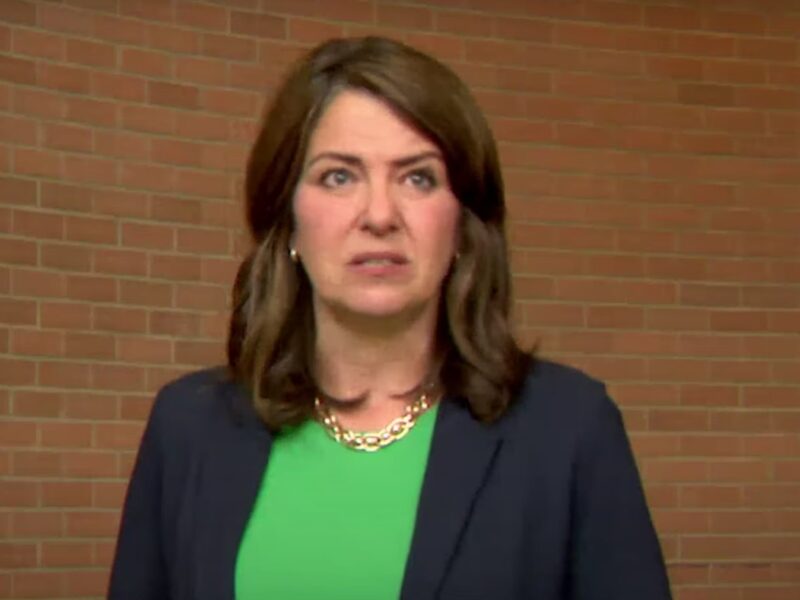


VICTORIA – British Columbians were shocked today to be informed by Alberta Premier Danielle Smith that she is now the head of the B.C. government after using the notwithstanding clause (section 33 of the Charter of Rights and Freedoms) to make herself premier of that province, too.
“In order to protect the British Columbish, or Beeceers, or whatever it is those people call themselves, from both the tyranny of choosing their own representatives and the horrors of not having large oil tankers fill the waters off their northern coast, I have sadly had to use the legal means at my disposal to make myself B.C. premier,” B.C. Premier Smith said at a press conference to announce her new position.
“But I want to assure Albertans that I will remain their premier. Even if they end up recalling me and every single other UCP MLA, I will not leave. For their own good, of course.”
Prime Minister Mark Carney, who recently signed a memorandum of understanding (MOU) with Smith to acknowledge both her new role as B.C. premier and her new role as his top environmental adviser, has made it clear that while he disagrees with the concept of a premier of one province unilaterally taking over a different province, his hands are tied by his unwillingness to do anything about it.
“This is a matter for the courts, probably,” Carney said. “It’s not my place to get involved in interprovincial issues. Unless the extraction industry asks me to. Wait, have they asked? No? Not yet? Okay, then let the courts handle it until then.”
B.C.’s former premier, David Eby, has voiced his displeasure at being usurped from his position.
“This is not fair,” Eby said. “Absolute power to control the lives of British Columbians should not be in the hands of people none of them voted for. It should be in the hands of people fewer than half of them voted for but who nevertheless have all the power because that’s how first-past-the-post elections work. It’s called democracy. Kind of.”
At press time, Ontario Premier Doug Ford had just declared himself “King of Upper and Lower Canada, the Eastern Islands, and the Northern Wastes,” which, according to legal scholars, the Charter of Rights and Freedoms also allows.


